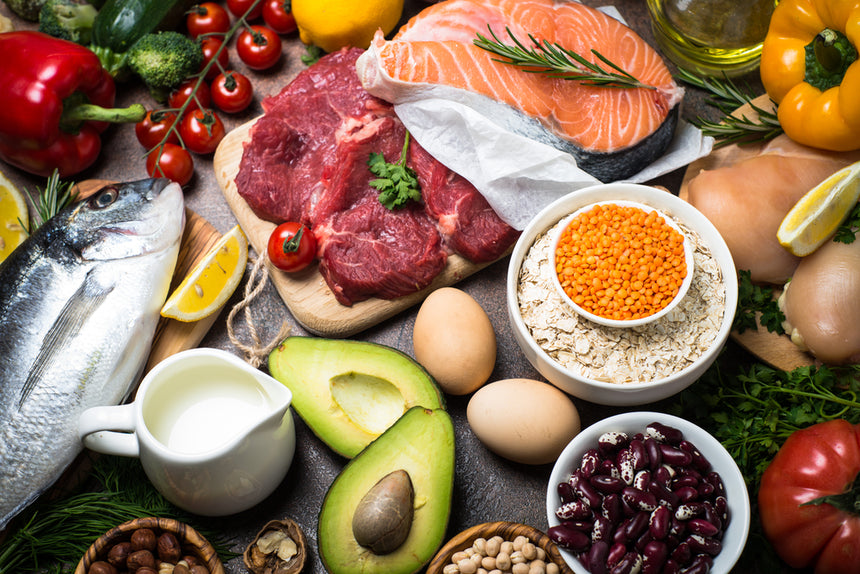4 Easy Nutrition Hacks
This may not be a huge secret to anyone, but just in case you need a reminder: what you put in your body matters. The food you eat is directly correlated to how you look, and more importantly, how you feel. One of the most important parts of taking care of yourself is making good decisions about food.
Now, don’t get “eating well” confused with “dieting.” Nobody is saying you need to follow a low-carb, vegan, Paleo, or any other type of diet. We’re also not saying you need to spend the rest of your days eating chicken, broccoli, and rice. What we are saying is the daily decisions you make about food should be thoughtful and health conscious.
Each time you decide to eat something, you should focus on the following things:
Quality
One of the most important things to think about when you’re making a food decision is the food’s nutritional value. In other words, what nutrients does the food provide? For example, a small bag of Fritos doesn’t offer much in the way of vitamins and minerals. As for protein, there’s pretty much nothing. What you’re getting is a bunch of salt, carbs, and fat.
Remember, none of those things are inherently bad, what’s problematic is thinking a bag of chips will provide the nutrition necessary to your overall health. A handful of almonds, on the other hand, provides a lot more nutritional value in the same number of calories.
What’s even better about quality food is that you don’t have to eat as much of it to feel full and get your body the nutrition it needs to function optimally.
Serving Size
Have you ever been in the middle of binge watching The Office on Netflix only to find that you’ve eaten an entire bag of chips? Us too. We’re all guilty of mindlessly eating. Although it’s not a big deal if it happens rarely, it becomes a problem if you continually eat without paying attention to the actual volume of food going into your mouth.
It’s fine to eat snacks, but you’d be much better off if you a. chose snacks that are quality, and b. read the package to find out the serving size. Don’t just grab the bag or box of whatever you’re eating and take it to the couch with you. Instead, put just one serving onto a bowl or plate and enjoy it slowly and deliberately.
It’s also important that, whenever possible, you check the caloric content of your food—especially your beverages. Those morning coffee drinks can have more than 500 calories in them with nothing to offer you nutritionally other than caffeine and sugar.
Balance
Everybody has heard the term “balanced diet,” but what does it actually mean? Ideally, it means getting a good ratio of the macronutrients protein, carbohydrates, and fats in every meal. A good way to measure each one is to with your hand. For each meal, try to eat a palm-sized amount of protein, a fist-size amount of carbs, and a thumb-sized amount of fat. If possible, try to include all three macronutrients in each meal.
Balanced meals will keep your blood sugar levels regulated and can help build muscle and maintain a healthy body weight.
Consistency
The absolute most important thing about eating well is doing it consistently. A good rule is to follow the 75/25 guide. Eat whole, nutritious, balanced meals 75 percent of the time. That means most of the meals and snacks you have should be quality. When you give yourself leave to eat your favorite treats, you’ll be much more likely to stick to a nutrition plan.
If you worry too much about being perfect, then your weight (and your health) will likely go up and down with each new “diet phase” you’re in. Nobody can be perfect for much longer than a few weeks. You don’t need an all-or-nothing attitude when it comes to making better food decisions.
What you need is the promise to yourself to stick to the first three habits, and continue to do them day by day, month by month, year by year. If you can make better decisions most of the time, good nutrition will become habitual.
Good habits will help you see your body improve, from the inside out.
